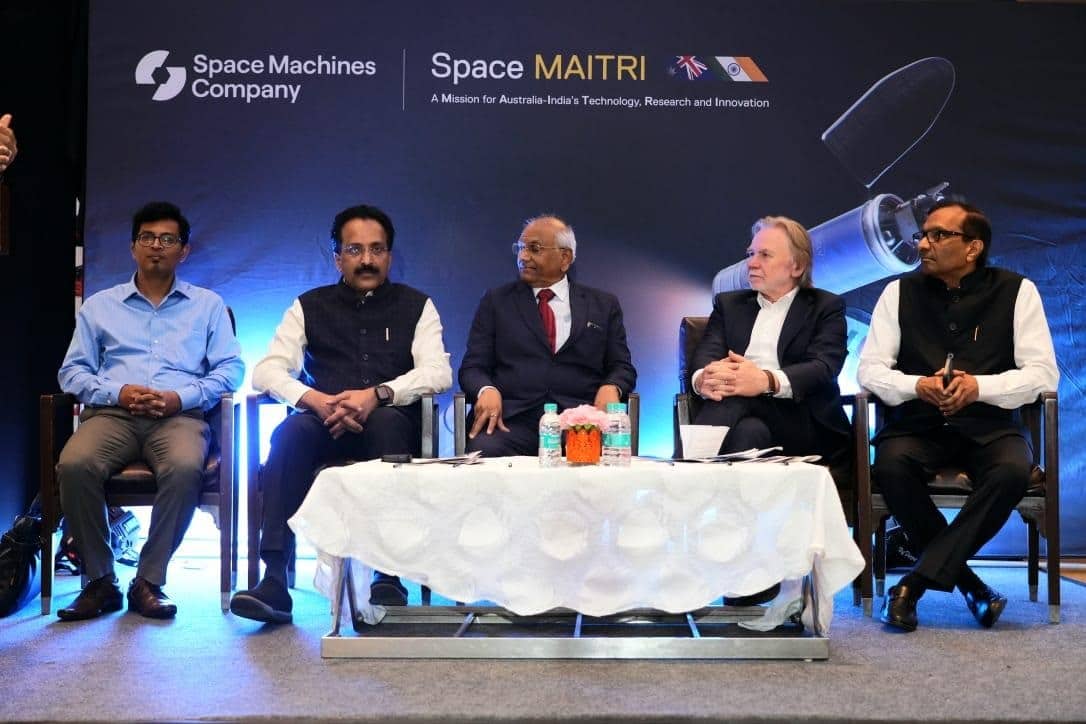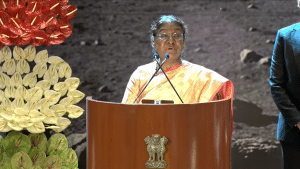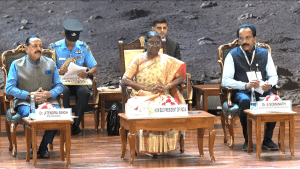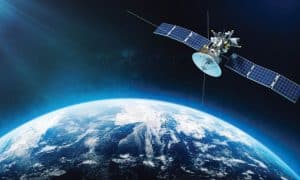The Indian Space Congress 2024 began with an exciting inaugural session, setting the tone on India’s growing prominence in the global space landscape. Dr Subba Rao, President of SIA-India, highlighted the ambition for India to become a central player in the global space ecosystem. He said, “The Indian ecosystem is going to be integrated into the global supply chain, to bring the benefit of space to all. We aim to make India the hub of global satellite manufacturing, forging way ahead to a Viksit Bharat by 2047.
This vision aligns with a broader push to use space technology for development across sectors like telecommunications, disaster management, and more.
Innovation with Multi-Orbit Strategy
The evolution of the Satellite industry has been very incremental in India. A multi-orbit satellite strategy uses a network of satellites in different orbits to provide a range of solutions for different applications. This strategy aims to match the right application to the right orbit.
Deepk Mathur, Executive Vice President, SES Satellites emphasized the need for both reliability and disruptive innovation. He stressed the importance of a multi-orbit strategy to address diverse applications, stating:
“Multi-Orbit Strategy will serve more applications than ever. The progress that’s been in the last 2 years outweighs the 28 years of development prior. There needs to be space based connectivity to bridge digital divide, enable future mobility, extend cloud to edge, fast track earth observation data sets and manage risk in conflict and disaster”.
Mathur also stressed the importance of localized solutions and collaboration to foster a robust supply chain ecosystem within India.
Satellite Technology’s Role in the Space Sector’s Growth
Several trends fuel the growth of the Indian Space Sector. Rainer Horn, Managing Partner from Novaspace identified four key trends driving this growth. These include having an Expanding pool of investors, Affordable access to space, Defence and security concerns and Growing demand for space-based applications.
These trends, coupled with regulatory developments and advancements in LEO broadband and IoT, are creating a fertile ground for innovation and investment.
AVM Rahul Bhasin, ACS (OPS) Space, Air Hqr added on the point of the importance of integrating space situational awareness with air situational awareness. He said, “There is a need for international cooperation in this domain to ensure the safety and security of space assets.”
Anil Kumar Lahoti, Chairman of TRAI, highlighted the role of satellite technology in providing high-speed broadband services and expanding connectivity to rural and untouched areas. He noted the potential of satellite technology in disaster management, sustainable development, and achieving Sustainable Development Goals.
Future of India’s Space Startups
The space sector has been a significant success story for Indian startups where tech players develop solutions to make India self-sufficient. Dr. Pawan Goenka, Chairman of InSpace, highlighted the rapid growth of India’s space start-up ecosystem.
He said, “There are now over 200 startups in the Indian space sector now. In the last 12 months, lot of developments have happened in the space sector with both the government and private sector. We are working on two areas, one is the whole regulatory, authorization area where we are making good progress and the other is driving Indian Space economy. These two tracks, scientific exploitation where ISRO is leading the way and all the space startups is in deep tech and are at an inflexion point.
Somanath, Secretary of DoS and Chairman of ISRO addressed the challenges and opportunities transitioning towards greater private sector participation in the Indian Space Sector.
He said, “The Journey of India’s Space Actors has not been an easy one. From governmental to private, new actors must emerge. Within ISRO & DOS, we must chart the future. The gap between civilian space and strategic space is becoming narrower. Access to space must become cheaper. Exploration inspires this generation and future generations, but we need to develop the technology for it.”
He raised points on bringing down the cost of access to space, the emergence of constellations for communication, and the need to inspire future generations through space exploration.








